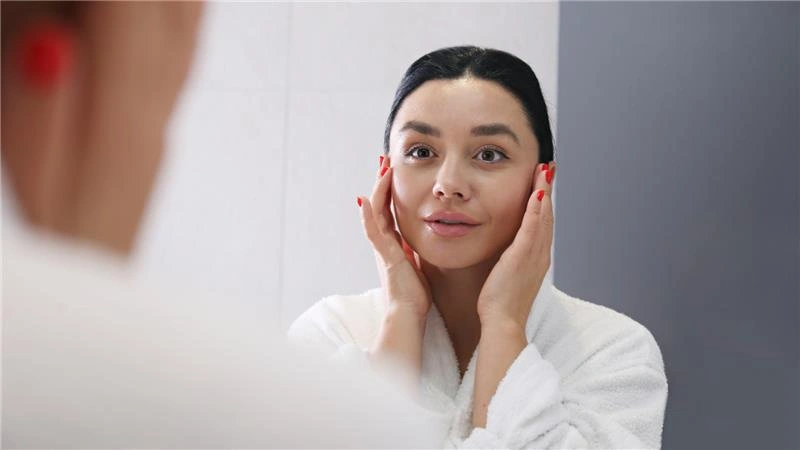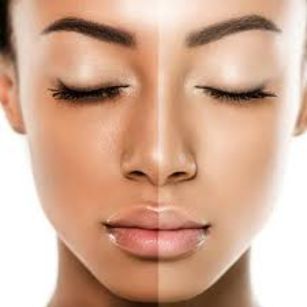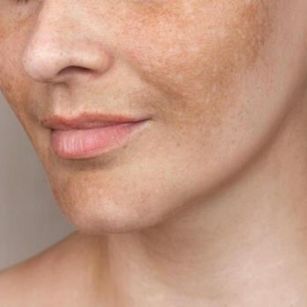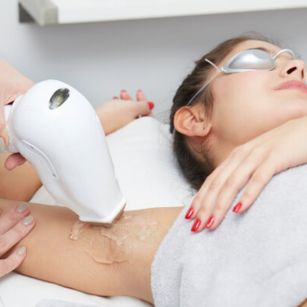
- By Dr. Ravali Yalamanchili
- 2024-11-21
Facial pigmentation is a common skin concern that affects people of all skin types and ages. It occurs when there’s an overproduction of melanin, the pigment responsible for giving your skin its color. This can lead to dark patches, uneven skin tone, and discoloration, often in the form of age spots, melasma, sunspots, or post-inflammatory hyperpigmentation (PIH). While pigmentation isn’t harmful, it can have a significant impact on your skin’s appearance and self-confidence. Fortunately, there are several dermatologist-approved methods to reduce and eliminate pigmentation.
We’ll explore a range of treatments and preventive measures, from topical treatments to professional procedures, that can help restore your skin’s natural glow. If you're looking for pigmentation treatment in Hyderabad, Neya Dermatology & Aesthetics offers expert solutions to address your pigmentation concerns.

Read on to find out more!
1. Topical Treatments for Pigmentation
The first line of defense against pigmentation is often topical treatments. These are non-invasive and easily accessible, either through over-the-counter products or prescription formulations from your dermatologist. These treatments help reduce pigmentation by lightening dark spots and preventing the formation of new pigment clusters.
Hydroquinone is widely regarded as the gold standard for lightening hyperpigmentation. It works by inhibiting the enzyme tyrosinase, which plays a key role in melanin production. Available in concentrations of 2% over the counter or in higher strengths by prescription, hydroquinone is effective for conditions like melasma and age spots. However, it should be used cautiously under the guidance of a dermatologist, as long-term use can lead to skin irritation or ochronosis (a form of skin darkening). Many experts who provide pigmentation treatment in Hyderabad recommend hydroquinone for stubborn pigmentation issues.
An antioxidant powerhouse, vitamin C helps brighten the skin and fade dark spots by neutralizing free radicals, which can contribute to pigmentation. It also inhibits tyrosinase, reducing melanin production. Dermatologists often recommend vitamin C serums for daily use because they also boost the skin’s defense against UV damage. However, consistent application is key, as it can take a few months to see noticeable results.

Retinoids (such as tretinoin) are vitamin A derivatives that work by speeding up cell turnover, pushing pigmented cells to the surface where they eventually slough off. They also promote collagen production, making the skin smoother and more resilient over time. Retinoids can be irritating initially, so dermatologists often recommend starting with lower concentrations and building tolerance.
Niacinamide (vitamin B3) is another popular pigmentation treatment ingredient. It works by reducing the transfer of melanin to skin cells, effectively lightening dark spots. Niacinamide also has anti-inflammatory properties, making it ideal for treating post-inflammatory hyperpigmentation, which often results from acne.
Kojic acid, derived from mushrooms, is a natural brightening agent that blocks tyrosinase activity, thereby reducing melanin production. It's commonly found in pigmentation-fighting creams and serums. While gentler than hydroquinone, kojic acid can still be quite effective, particularly for those with sensitive skin. Several clinics offering pigmentation treatment in Hyderabad include kojic acid in their skincare protocols.

2. Chemical Peels
For individuals with more stubborn or widespread pigmentation, chemical peels are a dermatologist-approved option that can significantly improve skin tone and texture. Chemical peels involve applying a solution containing acids that exfoliate the outermost layer of the skin, removing dead cells and pigmented areas. There are different strengths and types of peels, each suited to specific types of pigmentation and skin concerns:-
Glycolic acid is an alpha-hydroxy acid (AHA) that penetrates the skin to remove the top layer, revealing fresher, more even-toned skin underneath. It is particularly effective for mild hyperpigmentation and can be used in both professional settings and at home with lower concentrations.

This beta-hydroxy acid (BHA) is oil-soluble, meaning it penetrates deep into the pores. It’s especially useful for people dealing with acne-related pigmentation (PIH) as it not only exfoliates the skin but also helps control excess oil.
- Trichloroacetic Acid (TCA) Peels
TCA peels are stronger than glycolic and salicylic acid peels and are used for more severe pigmentation issues, such as melasma or sun damage. These peels penetrate deeper layers of the skin and provide dramatic results, but they may also require more downtime for healing.
While chemical peels are highly effective, they should always be performed by a trained dermatologist or professional to avoid complications like burns or further hyperpigmentation.
Chemical peels are some of the most popular pigmentation treatments in Hyderabad.
3. Laser Treatments for Pigmentation
Laser treatments are one of the most effective and advanced methods for treating facial pigmentation. Lasers work by targeting the melanin in pigmented areas, breaking it down into smaller particles that are then naturally eliminated by the body. Different types of lasers are used depending on the depth and type of pigmentation:
Fractional lasers, such as Fraxel, are designed to treat deeper pigmentation by creating microscopic injuries in the skin. This stimulates collagen production, accelerates the healing process, and reduces pigmentation. Fractional lasers are excellent for treating melasma, sunspots, and post-inflammatory hyperpigmentation, though multiple sessions may be needed for optimal results.

This laser is highly effective for targeting specific dark spots. It delivers high-intensity light pulses that fragment the pigment into smaller particles. The body’s immune system then absorbs the broken-down pigment. This method is particularly effective for treating age spots and stubborn dark patches. Many clinics offer laser pigmentation removal as part of their laser for pigmentation on face treatment plans.
- Intense Pulsed Light (IPL)
IPL is a light-based treatment, not a true laser, but it works in a similar way by targeting pigment-producing cells. IPL is excellent for treating diffuse pigmentation like sun damage and redness. It also helps with other skin concerns, such as broken capillaries and uneven skin tone, making it a versatile option. Clinics offering pigmentation treatment in Hyderabad often combine IPL with other treatments for better results.
- Laser for Hyperpigmentation
This treatment uses targeted laser beams to reduce pigmentation. It's especially effective for individuals looking to treat large areas of pigmentation. Dermatologists providing laser pigmentation removal for dark skin ensure that the treatment is safe and effective for people with darker skin tones, who are at higher risk for post-inflammatory pigmentation issues.
4. Microneedling with Radiofrequency
Microneedling involves using fine needles to create controlled micro-injuries in the skin, triggering the body's natural healing process and stimulating collagen production. When combined with radiofrequency (RF) energy, the treatment becomes even more effective at targeting pigmentation, as the RF energy heats the deeper layers of the skin to promote cell regeneration and break up the pigment. This treatment is beneficial for melasma and post-inflammatory hyperpigmentation.
Microneedling with RF is a minimally invasive option with little downtime, making it a popular choice for those looking for effective treatment with minimal recovery time.
Conclusion
Facial pigmentation can be frustrating, but with the right pigmentation treatment in Hyderabad and dermatologist-approved treatments from Neya Dermatology & Aesthetics, it’s possible to achieve a clearer, more radiant complexion. Whether you opt for topical treatments, in-office procedures like chemical peels and lasers, or lifestyle changes, consistency and professional guidance are key. Always consult a dermatologist before starting any new treatment plan to ensure it’s safe and tailored to your skin type. At Neya Dermatology & Aesthetics, clinics specializing in skin pigmentation laser treatment offer various options customized to suit different skin types and pigmentation issues.









